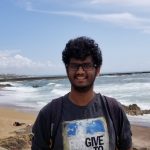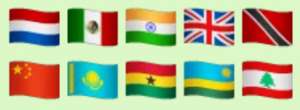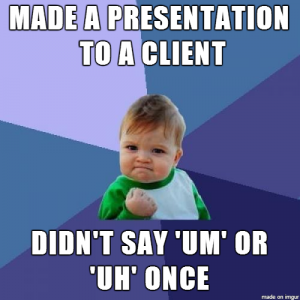The European Workshop Course
The European Workshop Course
Hello there! This blog post speaks about what one can expect from one of the restricted optional courses offered by Wageningen. This course is the European Workshop for Environmental Sciences and Management. This workshop is restricted for master’s students from the following backgrounds.
MES Environmental Sciences
MUE Urban Environmental Management
MLE Leisure, Tourism and Environment
MAM Aquaculture and Marine Resource Management
It is offered both in Period 1 and 6. It runs for eight full weeks. By reading this, you should hopefully get an insight into what you can expect from this course.
So, what is this workshop?
This workshop is THIRTY-member group project. Courses in Wageningen are renowned for its group work, and this course is at the zenith of all group exercise related projects offered by Wageningen.
All the members come from a multinational and multicultural background. The group works towards solving an environmental problem commissioned by a client from another city in Europe. When I had applied for this course, there were three different workshops with three clients from Porto, Lisbon and Malta. I had applied to the project conducted in Porto. The environmental problem we tried to solve was about the growing small electronic waste within households in Porto.
Ten different nationalities that took part in the Project that I was part of in Porto.
I will not get into the details about how this course is structured for its students. This is something one can read the course guide to understand it. I have attached the link to the course guide below here. For example, refer to the CONTENTS paragraph in the guide. It speaks about the three phases of the European Workshop.
https://ssc.wur.nl/Handbook/2018/Course/ESA60312
What to expect?
Firstly, this course can feel very long, probably the longest course in Wageningen. This course is very much comparable to how a large-scale group project would function in a real time job. It teaches you about the different dynamics involved in solving one problem with many different perspectives.
It also allowed me to identify my individual strengths and weakness on working in group projects. I did this through a taking a Belbin team roles test. To the general reader, you can easily find this test online. It took about 25-30 mins to complete this test. Take it with the group that you are currently working with. It is completely worth it!
This course also gives an amazing platform where one can develop their presentation skills. When members find information relevant to the project, they are constantly expected to share it to the entire group. This helps keep everyone at pace with the project and develops one’s skills while presenting to an audience. It is real good practice, especially if you start your thesis right after this course like me.
It also gives a few selected students the experience of learning how to lead a group. This happens through taking managerial roles in the project. The students that take up such roles also receive extra management training.
It also provides students a platform where they can design and test out different modes of data collection like surveys, interviews and experiments. It is again good practice especially if one’s thesis or future job requires the use of such methods. Also, one can afford to make mistakes in designing such methods in a master’s course like this. However, they cannot do the same for their future job or thesis.
Lastly, the most fun part of this course is that it has a field trip to another city in Europe. Not many courses offered by Wageningen take students to another place. So, people who take this course also end up getting a 2-week vacation in another city in Europe.
If you can take this course, I would suggest you do so. It is worth the experience!



